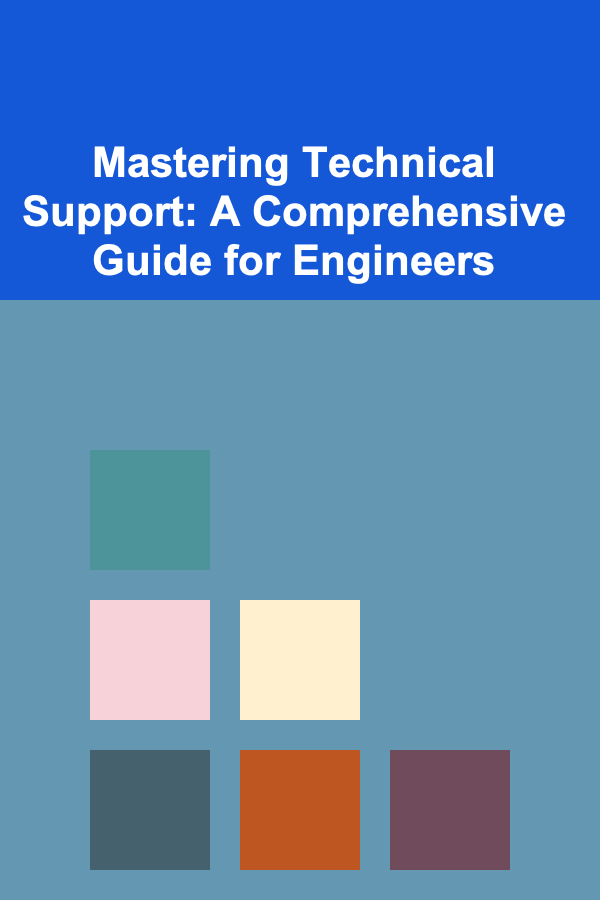
How to Land Your First Medical Writing Client
ebook include PDF & Audio bundle (Micro Guide)
$12.99$9.99
Limited Time Offer! Order within the next:
Not available at this time

Medical writing is a highly specialized field that combines scientific expertise with clear, accessible language. Whether you're interested in writing regulatory documents, clinical trial reports, medical journals, or content for healthcare websites, medical writing can be an incredibly rewarding career. However, getting started in this field can be a challenge, especially when it comes to landing your first client.
If you're looking to break into medical writing, you need a strategic approach to establish your credibility, network effectively, and demonstrate your skills. In this article, we will discuss the steps you can take to land your first medical writing client, with a focus on building a strong portfolio, leveraging your network, and approaching potential clients in a professional manner.
Understand the Medical Writing Landscape
Before you start pitching clients, it's important to understand the medical writing landscape and what types of writing opportunities are available. Medical writing spans a wide range of industries, including pharmaceuticals, biotechnology, medical devices, and healthcare. There are several niches within this field, including:
- Regulatory Writing: Writing documents that meet regulatory requirements, such as clinical trial protocols, informed consent forms, and study reports.
- Scientific Research Writing: Writing research papers for publication in medical and scientific journals.
- Medical Education: Creating content to educate healthcare professionals or the general public about medical topics.
- Marketing and Advertising: Writing promotional content for pharmaceutical companies, medical device manufacturers, or healthcare organizations.
- Healthcare Content Writing: Writing blogs, articles, or social media posts about health-related topics for medical websites or companies.
Understanding the different types of medical writing will help you target specific opportunities based on your interests and expertise.
Tip:
If you're just starting out, it might be a good idea to focus on a specific niche or type of writing that you feel most confident in. As you gain experience, you can branch out into other areas.
Build a Strong Foundation in Science and Medicine
One of the key requirements for medical writing is a strong background in science or medicine. Medical writers are expected to understand complex scientific concepts and present them in a clear, concise, and accurate manner. If you don't already have a background in a related field, you may want to consider taking courses in medical writing or healthcare to gain the necessary knowledge.
Courses and Certifications
- Medical Writing Courses: Many online platforms and universities offer courses in medical writing that cover the basics of the profession, including how to write regulatory documents, scientific papers, and healthcare content.
- Certifications: While certifications are not always required, they can help establish your credibility. The American Medical Writers Association (AMWA) offers a certification program that can help you demonstrate your expertise to potential clients.
Having a strong understanding of the medical field will make it easier for you to communicate with experts and understand the nuances of the documents you're writing.
Tip:
Even if you don't have a medical degree, you can still pursue medical writing by focusing on areas such as healthcare content writing or marketing. Many clients are looking for writers who can translate complex information into accessible language.
Create a Portfolio that Demonstrates Your Skills
A portfolio is your most important tool when trying to land your first medical writing client. A well-crafted portfolio can showcase your writing skills and demonstrate your ability to handle complex medical topics. While you might not have any paid work to include at first, there are still ways to build a strong portfolio that impresses potential clients.
Ways to Build a Portfolio:
- Write Sample Pieces: If you don't have any professional experience, create sample pieces that show off your writing ability. These can include blog posts on healthcare topics, mock regulatory documents, or summaries of scientific papers. Choose a range of topics that show your versatility and writing skills.
- Volunteer Work: Consider volunteering to write for medical organizations, research institutes, or health-related websites. This will give you real-world experience and something to showcase in your portfolio.
- Use Your Existing Knowledge: If you have a background in a particular field of science or healthcare, use your expertise to write sample pieces relevant to that field. For example, if you have a background in oncology, you could write an article summarizing recent developments in cancer research.
Your portfolio should highlight your writing skills as well as your ability to communicate complex medical topics to a broad audience. If you're interested in regulatory or scientific writing, make sure your samples reflect your understanding of technical language and formatting.
Tip:
Make sure your portfolio is easy to navigate and showcases a variety of writing samples. If possible, include a brief description of the target audience for each piece to demonstrate your ability to write for different readers.
Leverage Your Network to Find Opportunities
Networking is essential when starting out in medical writing. Many clients prefer to hire writers they have a personal connection with or who come recommended by someone they trust. As such, building and nurturing a professional network is an effective way to land your first client.
Networking Strategies:
- Join Professional Organizations: Joining organizations like the American Medical Writers Association (AMWA) or the European Medical Writers Association (EMWA) can help you connect with other medical writers and potential clients. Many of these organizations offer networking events, conferences, and job boards where you can find opportunities.
- LinkedIn: LinkedIn is an excellent platform for networking with professionals in the healthcare and medical writing fields. Connect with people in the industry, follow relevant companies, and engage with content related to medical writing.
- Attend Conferences and Events: Attend medical writing conferences, workshops, and webinars to meet potential clients and colleagues. Even virtual events can be a great way to network and learn more about the industry.
Networking with other writers and professionals in the healthcare industry can help you learn about job opportunities, get advice, and even land your first client.
Tip:
Be proactive when networking. Don't wait for opportunities to come to you---reach out to others, ask for informational interviews, and make sure your network knows you're looking for medical writing work.
Approach Potential Clients with Confidence
Once you have your portfolio ready and have started building a network, it's time to start approaching potential clients. While cold emailing or cold calling can be intimidating, it's a necessary part of the process when you're just starting out. Here are some strategies for reaching out to potential clients:
How to Approach Clients:
- Research Potential Clients: Before reaching out, research potential clients to understand their needs and how your skills align with their business. Look for companies that specialize in the type of writing you're interested in and that may need freelance medical writers.
- Craft a Compelling Pitch: When reaching out to potential clients, your pitch should highlight your expertise, experience (even if it's just through your portfolio), and your interest in working with them. Be clear about what you can offer and how you can help them with their writing needs.
- Offer a Trial Project: If you're having trouble landing your first client, consider offering a trial project at a lower rate to demonstrate your skills. This can be a good way to break into the industry and prove your value.
Tip:
Be persistent but polite when following up with potential clients. If you don't hear back after your initial email, it's okay to send a follow-up message after a week or two.
Set Realistic Expectations and Be Patient
Landing your first client can take time, especially in a competitive field like medical writing. It's important to set realistic expectations and be patient as you build your career. It may take several months of networking, pitching, and refining your skills before you land your first paying client.
Tips for Staying Motivated:
- Start Small: Don't expect to land a large contract right away. Start with smaller projects that allow you to build your portfolio and gain experience.
- Set Goals: Set short-term goals for yourself, such as submitting a certain number of pitches each week or attending networking events. Achieving small goals will help you stay motivated and track your progress.
- Learn from Rejection: Rejection is a normal part of the process. If you don't land a client, ask for feedback to understand what you can improve for next time.
Tip:
Remember that medical writing is a niche field, and clients may take some time to trust you with larger projects. However, once you establish yourself and build a reputation, more opportunities will follow.
Landing your first medical writing client requires a combination of strategy, persistence, and patience. By building a strong portfolio, leveraging your network, and approaching clients with confidence, you can break into the field and start building a successful career as a medical writer.

How to Become a Social Media Manager and Make Extra Money
Read More
How to Choose Between Saving for Retirement or Paying Off Debt
Read More
How to Turn Your Closet Into a Functional Storage Space
Read More
Mastering Technical Support: A Comprehensive Guide for Engineers
Read More
How To Understand Threat Intelligence for Beginners
Read More
How to Build a Picture Frame Wall: A Comprehensive Guide
Read MoreOther Products

How to Become a Social Media Manager and Make Extra Money
Read More
How to Choose Between Saving for Retirement or Paying Off Debt
Read More
How to Turn Your Closet Into a Functional Storage Space
Read More
Mastering Technical Support: A Comprehensive Guide for Engineers
Read More
How To Understand Threat Intelligence for Beginners
Read More